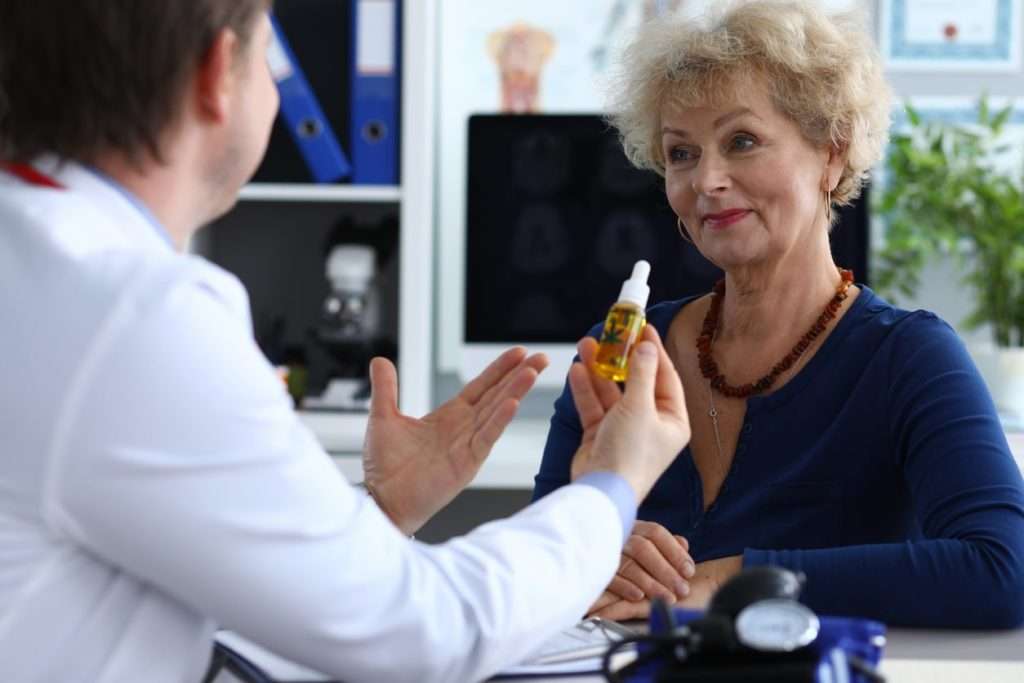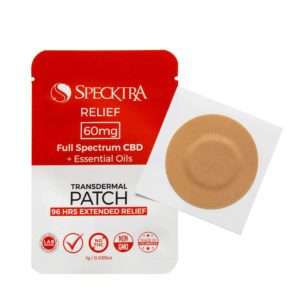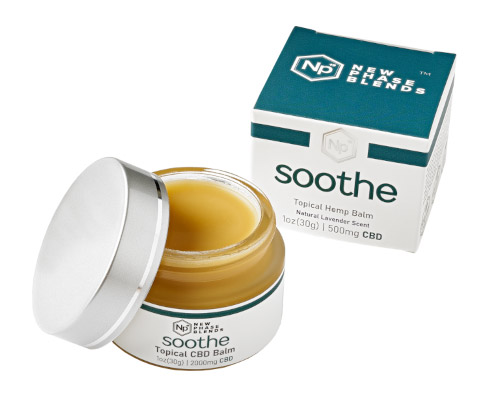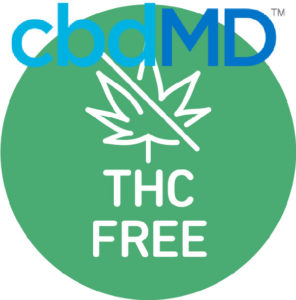Does CBD cream interact with medications? The more people that use CBD, the more times this question comes up. It makes sense to want to know these things, right?
Let’s find out.
What Are CBD Creams?
CBD creams are a topical pain-relieving medication that contains CBD, a non-psychoactive cannabinoid found in the cannabis plant. It doesn’t have any THC, so it won’t cause a high or show up on a drug test.
Can CBD interact with receptors in your endocannabinoid system?
Yes, this system comprises cannabinoid receptor proteins and the enzymes that produce and break down the cannabinoids your body produces naturally.
There are many different kinds of cream, so it’s essential to research before purchasing one. Some creams contain other ingredients like menthol or camphor, which can irritate the skin. Other CBD creams are made with titanium dioxide, a safe mineral sunscreen ingredient.
Are CBD Creams FDA Approved?
Although CBD creams aren’t FDA approved, many people find relief from topical pain medication that contains it. If you’re considering using CBD creams to relieve pain, be sure to speak with your doctor first or another qualified health provider.
Benefits of CBD Creams
The use of Creams is slowly gaining momentum in the medical world and among the general public. The benefits are diverse, and it has been thoroughly studied due to its powerful anti-inflammatory properties and neuroprotective effects on the body.

For many who suffer, it is a natural alternative to prescription painkillers, OTC pain medicines, and anti-inflammatory drugs, which are often associated with side effects that can be harmful to the body.
This is why many people are turning towards alternative products.
CBD Creams can be used for numerous common ailments, including muscle aches and pains, chronic pain, rheumatoid arthritis, psoriasis, dermatitis, and other skin ailments. In addition, some companies sell creams infused with aloe to aid in moisture and sunburn relief.
What Have Studies Found About CBD?
Many studies have also found that CBD has potential anti-cancer properties. As a result, many users of alternative cream products place importance on the possible preventative effects of CBD on cancer cells. It can also be used with other treatments to improve its effectiveness.
Read more about the many different uses of hemp.
The benefits of CBD Creams are vast and continue to be studied(2). Topical cream may provide relief and preventative care for those who suffer from chronic pain, inflammation, or other conditions. In addition, the creams are natural, safe, and have few side effects.
What Does WHO and the FDA Say?
The World Health Organization (WHO) released a report in November 2017 that focused attention on the safety profile of CBD throughout the world.
In April 2018, the US Food and Drug Administration (FDA) published research that stated CBD products have no addictive or harmful side effects. According to this study, CBD has no impact on intracranial self-stimulation.
The World Health Organization discovered that CBD has no adverse health effects and is well tolerated in humans and animals.
Should You Talk to Your Doctor Before Using?
According to Mayo Clinic, it is always recommended to talk with your doctor for professional medical advice before beginning its regimen.
According to figures from the United States, it outsells all supplements in terms of sales.

CBD is undoubtedly safe; nevertheless, when you’re taking other medicines, it’s always a good idea to inquire whether CBD might cause a drug interaction with your current medication.
With all of the discussion about CBD supplements, a couple of questions persist: Is CBD lotion compatible with ongoing therapy, and will CBD interact with specific medications?
This is one post that can clear it all up if you’re someone who uses CBD topicals while also taking prescription or over-the-counter drugs.
Do Transdermal CBD Patches Cause a Drug Interaction?
What about transdermal CBD patches? Here is the story about patched: they are not the same as the CBD topicals. Transdermal CBD patches are designed to enter the bloodstream; so, logically, one would assume that they could cause a drug interaction.
But, with the lack of valid scientific evidence to prove otherwise, it isn’t likely that this topical method of CBD application would cause a drug interaction.

Why not, though?
While a CBD transdermal patch will cause CBD to enter the bloodstream, it doesn’t cause CBD to be absorbed by the liver.
This is because transdermal patches are direct to the bloodstream and do not get metabolized. This type of CBD delivery method bypasses the digestive tract and liver altogether.
Dr. Noel Palmer is one of the cannabis industry’s most well-known transdermal patch developers and an award-winning laboratory scientist specializing in plant properties.
What is the Definition of Drug Interaction?
Read About: CBD and Drug Interactions
When looking into potential CBD drug interactions with your medications, you must first understand what a drug interaction is.
When you take more than one drug or supplement at a time, interactions can occur. According to the FDA, drug interactions might make a medication less effective, produce unwanted side effects, or boost the activity of certain drugs.
These reactions can be detrimental for patients.
There Are Three Types of Drug Interactions, Each With Its Own Set of Risks
Lets take a minute to go over these three interactions:
Drug/Drug Interactions
When two or more drugs interact with one another and have undesirable side effects. If you mix a sedative and an allergy medication, for example, your reactions and reflexes might be slowed, putting you at risk if you’re driving a vehicle.
Interactions Between Drugs and Beverages and Foods
Taking a benzodiazepine (such as Valium) with alcohol can induce adverse effects such as drowsiness, dizziness, sedation, loss of consciousness, and (in severe cases) death.
Eating parsley might make your blood too thin and cause significant bleeding if you had a cut and are taking a blood thinner.
Drug/Condition Interactions
Unfortunately, this also applies to many medications that you might think are okay for people with specific diseases or even over-the-counter medications.
If you use a decongestant or pain medication such as ibuprofen and have high blood pressure, acute kidney injury, or other similar problems, you may suffer an adverse reaction.
Cannabinoids and the Cytochrome P450 Enzyme System
CBD may interact with numerous medicines; therefore, it makes sense to examine how CBD interacts with other prevalent drugs to avoid drug interactions.
CBD appears to decrease the cytochrome P450 enzyme system, which is present in the liver and responsible for metabolizing hazardous chemicals such as over 60% of other medications that have been taken.
So, if a nutrient is blocked by an herb on the pathway, other medicines will not access the enzymes, which can cause a buildup. Because of this, a drug that takes longer to start working may not have the desired effect, and the entire amount taken together might be harmful rather than therapeutic.
Even a tiny amount of CBD can have an impact.
Doses for Certain Medications
Doctors determine the average time it would take a drug to go through the cytochrome P450 enzyme system and be metabolized to establish dosages for particular medications. As a result, patients may experience unwanted side effects.
It’s worth noting that other drugs metabolized via the cytochrome p450 system have the potential interactions with CBD.
CBD creams, for example, may react with warfarin. To avoid any adverse effects, doses of warfarin might need to be lowered owing to the same interaction with P450 enzymes. If you are on blood thinners, you should discuss this with your doctor.
Here Are a Few Possible Drug Interactions:
- Blood thinners: CBD creams may increase the blood-thinning effects of warfarin and other anticoagulants.
- Benzodiazepines: CBD creams could cause the effects of benzodiazepines to be enhanced, leading to respiratory depression or profound sedation.
- Diabetic medication: Diabetic medications may cause hypoglycemia when used with CBD creams.
- Hormonal contraception: Hormonal contraceptives such as birth control pills might decrease the effectiveness of CBD creams.
- Proton pump inhibitors: CBD creams could cause the effects of proton pump inhibitors such as omeprazole, lansoprazole, and pantoprazole to be enhanced, leading to stomach distress and potentially ulcers.
- Selective serotonin reuptake inhibitors (SSRIs): SSRIs can prolong and intensify the effects of CBD cream, which could lead to serotonin syndrome.
- Tricyclic antidepressants: Tricyclic antidepressants may prolong and intensify the effects of CBD creams, which could lead to serotonin syndrome.
Is it possible that taking CBD along with a cytochrome P450-metabolized drug will result in an adverse reaction? Unfortunately, nothing is for sure, so be cautious and consult your doctor or any other qualified health provider or healthcare professional before using CBD.
Raised Concerns About Psychoactive Properties
Many people believe that CBD creams interact with other medications because it has psychoactive properties, but this is only part of the story. CBD creams actually have many benefits, which can also be achieved without having psychoactive properties.
It provides relief from chronic pain, muscle spasms, and inflammation. It can also be used to treat acne, eczema, and psoriasis. It works by activating cannabinoid receptors in the body, which are responsible for balancing some of the functions of our central nervous system. Essentially, CBD creams are very low on the psychoactive scale.
Is It Possible for Topical CBD Products To Create a Drug Interaction?
First, they provide localized pain relief. For example, a CBD cream may be used to target the painful region and soothe it if you have a sore knee, a painful wrist, or a hurt back.
Simply massage a CBD topical onto your painful area and let the non-psychoactive cannabinoid, CBD, do its thing.
Second, CBD topicals provide fast pain relief. This is because they quickly enter the skin’s layers. The endocannabinoid system is found in the skin.
Unlike CBD oils or edibles, CBD topicals are not digested in the body and absorbed into the bloodstream. As a result, you shouldn’t expect a CBD oil, salve, cream, balm, or lotion to cause any issues with your prescription medications, so therefore no potential drug interactions.
It does not enter the digestive system and is therefore not digested. Thus it does not come into contact with the liver’s cytochrome P450 mechanism or interact with it. Therefore, CBD lotions, salves, balms, and creams should be free of drug interactions.
Is It Possible That CBD Transdermal Patches Will Cause Drug Interaction?
Transdermal CBD patches are not the same as CBD topical applications. Therefore, one would assume that transdermal CBD patches meant to enter the bloodstream might result in a drug interaction. However, because there is no scientific evidence to suggest otherwise, it’s unlikely that topical CBD application would create a drug interaction.
While a CBD transdermal patch permits CBD to enter the bloodstream, it does not lead to its absorption by the liver.
This is because transdermal patches directly enter the bloodstream and are not broken down. As a result, CBD administration via this mode of delivery bypasses the digestive system and the liver.
Noel Palmer’s Assessment of Transdermal Patches
Dr. Noel Palmer is a well-known transdermal patch developer and laboratory scientist specializing in plant characteristics.
When asked about the advantages of transdermal patches, Mr. Palmer had the following to say:
“The reason why you use a patch is it’s direct to the bloodstream, it’s a slow timed release, and it’s a relatively gentle way to administer a drug for someone who may be averse to taking a pill, to vaporizing, to those kinds of things.
“Especially with THC, when ingested, it goes through your liver, and all of a sudden you get these THC metabolites floating around in the body that are totally different pharmacologically. When you eat [cannabis], you get a spike of 11-Hydroxy-THC – which is actually very strong and might be stronger than the Delta-9. This may be why people are having these kinds of psychedelic experiences when they eat cannabis.
“But with the patch, in theory, you don’t get that because you’re going direct to the bloodstream, so you’re not going to get these kinds of secondary metabolites that you would when you ingest.”
Final Thoughts About CBD Cream and Drug Interactions
As cannabidiol (CBD) is becoming more and more popular with health conditions, it is crucial to be aware of both the positive and negative effects.
CBD Creams are being touted as holistic medicine. However, even though they have been used for thousands of years with few reported side effects, there has not been enough research for us to understand how it works. That’s why it is important to be aware of what could happen if you choose to use CBD Creams to help with your medical conditions.
Always check with your doctor or other qualified health providers before taking any sort of CBD product. If you’re already on multiple medications, this is particularly important.
References
CANNABIDIOL (CBD) Pre-Review Report https://www.who.int/medicines/access/controlled-substances/5.2_CBD.pdf
Balzer, D. (2019, August 22). Mayo Clinic Minute: Is CBD safe to use? Retrieved January 28, 2021, from https://newsnetwork.mayoclinic.org/discussion/mayo-clinic-minute-is-cbd-safe-to-use/



